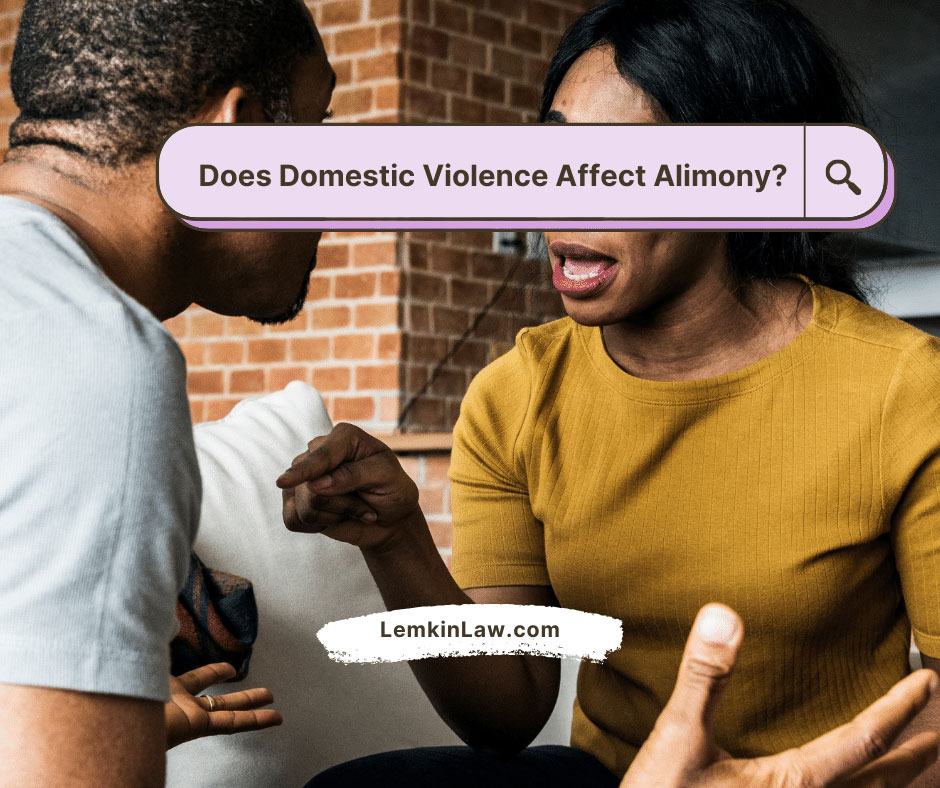Does Domestic Violence Affect Alimony?
We take domestic violence very seriously. Here’s how it impacts alimony.
Obtaining the services of an Orange County divorce attorney is crucial as California California passed a series of amendments to the Family Code in 2019.
These amendments affect the division of assets and the calculation of spousal support in a divorce case with incidents of domestic violence. Let’s take a look at how these laws affect the divorce process
California: A No-Fault Divorce State
In some states, domestic violence can be cited as the reason for obtaining a divorce. California, however, is a no-fault state, meaning that couples can only cite irreconcilable differences as the cause for their divorce.
This means that not only does a couple not have to prove fault, but that fault is not considered by the court when deciding on the divorce settlement.
Whether a spouse had an affair or abused alcohol does not weigh into a court’s decision on the distribution of assets.
One exception, however, is domestic violence. If present during the marriage and within five years before the divorce proceedings, it can significantly impact spousal support.
Alimony Considerations in California
Alimony, or spousal support, is intended to provide financial support to the spouse that may have difficulty supporting themselves following the divorce.
This is a strong consideration in cases where a spouse gave up career or education opportunities to care for the children.
In these and other cases, the primary earner may be ordered to pay alimony. The court considers several factors, such as the supported spouse’s work history, marketable skills, training and education, and present and future earning potential.
The court also considers the income and ability to provide support for the paying spouse, how long the couple was married, their age, and their health.
Obtaining the services of an Orange County divorce attorney is critical in these types of cases.
How Domestic Violence Changes Spousal Support Decisions
California Law requires courts to consider domestic violence in divorce settlements—as it relates to alimony, includes physical assault, sexual assault, and emotional abuse.
To consider domestic violence when rewarding alimony, the accusations must be documented and evidence-based. Restraining orders and criminal convictions may be considered if they occurred within five years before the divorce proceedings.
If a conviction exists or the abused spouse can provide enough evidence, the court will presume that the abusive party should not receive spousal support. Before 2019, except in the case of sexual abuse, this presumption could be rebutted by the spouse accused of domestic violence. A common argument was that both parties committed domestic violence.
For help determining how domestic violence affects your right to alimony, reach out to an Orange County divorce attorney.
Changes to California Law
When the new amendments went into effect in 2019, the law regarding alimony awards and domestic violence changed.
Now, spouses with a felony conviction of any type of domestic violence cannot receive alimony. Additionally, a restraining order may be used as evidence for domestic violence.
In these cases, the convicted spouse may not produce contradictory evidence and rebut or disprove the decision.
If the conviction of domestic abuse was a misdemeanor, a rebuttable presumption exists, meaning that the courts presume that the convicted spouse should not receive alimony. The accused, however, can submit evidence in court to refute this decision. This is often successful in situations where both parties were convicted of domestic violence.
Additionally, if the victim of domestic violence has benefits such as a retirement pension, the court may award 100% of what would normally be considered community property to the victim.
False Allegations of Domestic Violence
Spousal support has always been one of the more hotly contested aspects of a divorce. Many couples bear anger and resentments that boil over into the divorce proceedings. This leads to each of them wanting to get the better of the other one.
Unfortunately, some couples can take this vendetta too far.
Whether seeking significant alimony or trying to get 100% physical and legal custody of the children, some spouses go so far as to accuse an innocent spouse of domestic violence.
Remember, domestic violence does not have to be physical abuse but also includes harassment, interfering with someone’s freedoms, and threats that leave the other spouse feeling scared and unsafe.
An accused spouse may be arrested or served with a protective order, both of which can be used in divorce proceedings.
The spouse seeking a protective or restraining order must prove that there is a preponderance of the evidence. This means that the party must prove that it is more likely than not that the domestic violence occurred.
If you believe your spouse is capable of imposing self-inflicted harm in order to claim spousal abuse, it may be best to limit contact, refrain from being alone with them, and contact an Orange County divorce attorney immediately.
Obtaining an Attorney You Can Trust
We take domestic violence very seriously and condemn domestic violence in all of its forms. Unfortunately, we have also seen cases where false allegations were made to gain the upper hand in divorce proceedings.
We’ve served couples facing the dissolution of their marriage for nearly 20 years. Whether the victim of domestic violence or a spouse being falsely accused so as to affect the outcome of a divorce settlement, we are here to help.
As Board Certified Family Law Specialists, our team puts families ahead of profits. The best interests of the children are our first priority. If a couple can agree upon the many decisions required in a divorce settlement, we always recommend mediation—a less stressful and costly alternative to litigation.
When a spouse has experienced domestic abuse, mediation may be a difficult process for them to consider. They may feel incapable of speaking up or afraid to stand up for themselves.
As certified mediators, we understand the constraints and know when litigation is the best course of action. During the legal process, having someone in your court that understands family law is essential.





